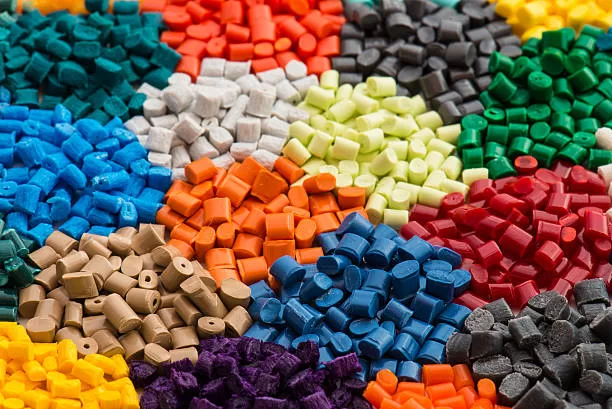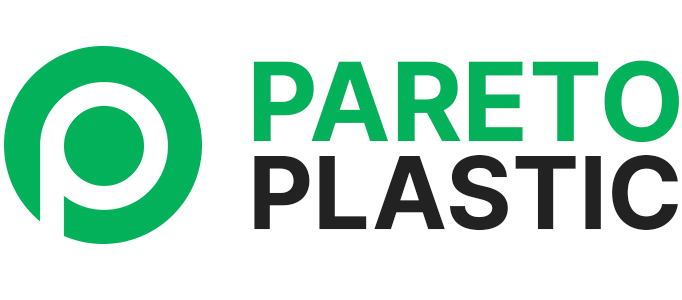Plastic Extrusion Materials
Choosing the right plastic extrusion material. Benefit from our knowledge and experience in selecting the ideal raw material for your project.
When embarking on an extrusion project, selecting the right plastic material is paramount to ensuring successful manufacturing, optimal functionality, and cost-effectiveness. At Pareto Plastic, our experienced sales engineers can guide you through the process of choosing the most suitable plastic extrusion material for your specific application. We maintain a comprehensive inventory of both commodity-grade and engineering-grade plastics, and our strong relationships with plastic resin suppliers enable us to source any material your project may require at competitive prices.

Our expertise in extrusion processes has led us to identify the following plastic materials as being particularly well-suited for creating extruded profiles:
1. PVC (Polyvinyl Chloride)
PVC is a highly versatile plastic that is widely used in extrusion due to its ease of processing and ability to incorporate additives tailored to the end use of the profile. PVC profiles can be extruded in various diameters and wall thicknesses, making it an excellent choice for a range of applications.
2. ABS (Acrylonitrile Butadiene Styrene)
Known for its exceptional mechanical properties, ABS is not only a staple in the 3D printing industry but also suitable for extrusion to produce raw materials for mechanical processing. ABS can be easily machined using milling, drilling, and lathing equipment, making it a popular choice for secondary processes.
3. Nylon
Nylon’s outstanding wear and impact resistance make it an ideal material for extrusion into rods, tubes, and sheets. Commonly extruded nylon types include nylon 66, PA 6, and PA 12. These profiles are frequently used in the food industry due to their high mechanical strength.
4. Polycarbonate (PC)
Polycarbonate is renowned for its strength, heat resistance, and impact resistance, making it suitable for structural applications in the machinery and construction industries. Extrusion is the primary process for obtaining polycarbonate raw materials for further processing.
5. Polypropylene (PP)
PP’s flexibility and low density make it a popular choice for blown film and sheet extrusion, particularly in applications where weight reduction is crucial. PP is also widely used in plastic packaging due to its versatility in blown film extrusion.
6. Thermoplastic Polyurethane (TPU)
TPU’s exceptional flexibility and versatility in manufacturing processes make it a suitable material for extrusion into various cross-sectional shapes. Extruded TPU is often used for pipes, wires, and structural profiles, offering a wide range of applications.
7. PEEK (Polyetheretherketone)
Although challenging to extrude due to its temperature sensitivity, PEEK is highly valued for its use in medical applications, where it enables the creation of small-sized pipes and profiles. PEEK can also be extruded as a solid for further processing into gears, variable-section plastic shafts, and other machine parts.
8. High-Density Polyethylene (HDPE)
HDPE is commonly used in industrial process pipes due to its durability and resistance to water and vapor permeation. HDPE extrusion is also utilized for electrical insulation and in various industrial, residential, and automotive piping applications.
9. Polyacetal (Delrin)
Polyacetal, also known as Delrin, is a rigid thermoplastic polymer that can be extruded to high tolerances. Delrin extrusions are commonly used to produce rods, tubes, and raw materials for further processing, making it a reliable material for a variety of applications.
Our vast experience and cost efficiencies in handling these materials guarantee top-notch quality and cost-effective solutions for every custom extrusion order we undertake.
Selecting the Right Plastic Extrusion Materials
From standard materials to specialty polymers, we have the expertise to guide you.
